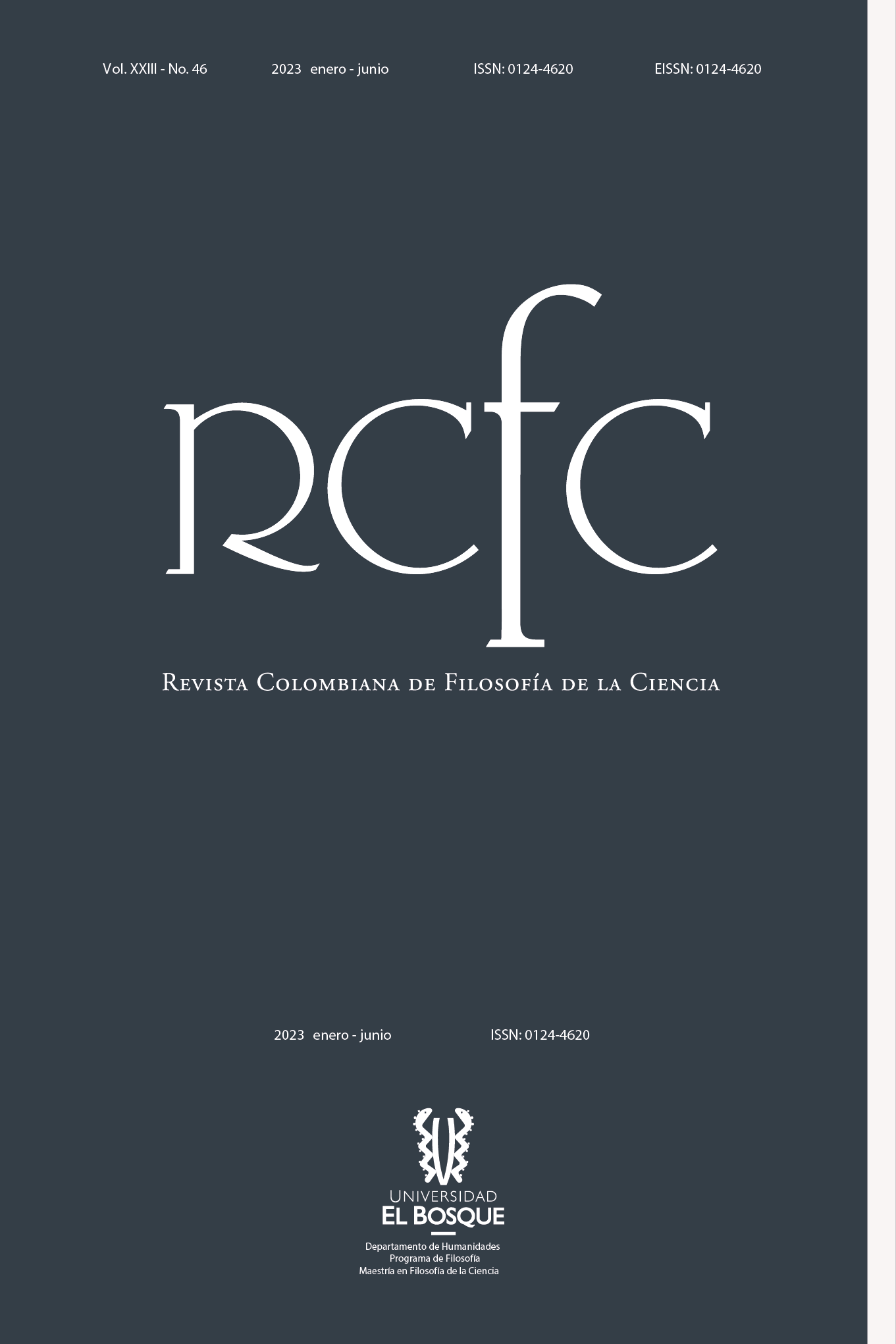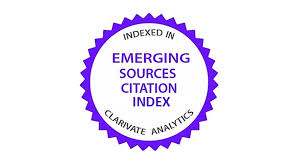Experticia del ajedrecista desde una perspectiva microfenomenológica
DOI:
https://doi.org/10.18270/rcfc.v23i46.3836Palabras clave:
ajedrez, fenomenología, intuición, experticia, entrevista microfenomenológicaResumen
Diferentes investigaciones han abordado el fenómeno de cómo el jugador de ajedrez alcanza un nivel alto de experticia; sin embargo, la gran mayoría se han llevado a cabo desde una perspectiva en tercera persona, es decir, sin tomar en cuenta la experiencia subjetiva del ajedrecista. El presente trabajo tiene como objetivos: 1) analizar la experticia de ajedrecistas de nivel proficiente desde una perspectiva fenomenológica, esto es, desde la experiencia subjetiva del jugador; 2) señalar los estados internos que parecen ser cognitivamente relevantes en las acciones de los ajedrecistas; 3) teorizar sobre el eventual papel que juega la intuición en las acciones de los jugadores de ajedrez. Para ello se realizó un estudio exploratorio con cinco jugadores de ajedrez durante una competencia de corte nacional en México, utilizando como método la entrevista microfenomenológica propuesta por Claire Petitmengin. Los resultados indican que hay regularidades en los estados internos de los jugadores a nivel intra e interpersonal asociadas implícitamente a momentos críticos de las partidas. Lo anterior permite ofrecer una definición operacional de la intuición y afirmar que esta, en efecto, forma parte de los procesos cognitivamente relevantes de los ajedrecistas de nivel proficiente, aunque las acciones de estos aún dependen, en buena medida, de los cálculos explícitos que realizan durante los momentos críticos.
Descargas
Referencias bibliográficas
Aciego, Ramón., García, Lorena y Moisés Betancort. “The Benefits of Chess for the Intellectual and Social-emotional Enrichment in Schoolchildren”. The Spanish journal of psychology 15.2 (2012): 551-559. <https://doi.org/10.5209/rev_SJOP.2012.v15.n2.38866>
Austin, John Langshaw y Urmson J. O. Cómo hacer cosas con palabras. Barcelona: Paidós, 1990.
Astudillo Sandoval, Isidoro. Expertise del ajedrecista desde una perspectiva fenomenológica. Tesis de Maestría en Ciencias Cognitivas: Universidad Autónoma del Estado de Morelos octubre, 2020. 1-57. < http://riaa.uaem.mx/handle/20.500.12055/1308>
Baddeley, Alan David. “Working Memory”. Philosophical Transactions of the Royal Society of London. B, Biological Sciences 302.1110 (1983): 311-324. <https://doi.org/10.1098/rstb.1983.0057>
Bratko, Ivan. “AlphaZero–what’s missing?” Informatica 42.1 (2018): 7-11. <https://www.informatica.si/index.php/informatica/article/view/2226>
Bueno, Lázaro. Ajedrez juego ciencia y con ciencia. La Habana: Sello Editorial Academia, 2015.
Burgoyne, Alexander P., et ál. “The Relationship Between Cognitive Ability and Chess Skill: A Comprehensive Meta-Analysis”. Intelligence 59 (2016): 72-83. <https://doi.org/10.1016/j.intell.2016.08.002>
Connors, Michael H., Burns, Bruce D. y Campitelli, Guillermo. “Expertise in complex Decision Making: the Role of Search in Chess 70 years After de Groot”. Cognitive science 35.8 (2011): 1567-1579. < https://doi.org/10.1111/j.1551-6709.2011.01196.x>
Charness, Niel. “Search in Chess: Age and Skill Differences”. Journal of Experimental Psychology: Human Perception and Performance 7.2 (1981): 467-476. <https://doi.org/10.1037/0096-1523.7.2.467>
Chase, William G., y Herbert A. Simon. “Perception in Chess”. Cognitive Psychology 4.1 (1973): 55-81. <https://doi.org/10.1016/0010-0285(73)90004-2>
De Groot, Adriaan D. Thought and choice in chess. Berlin, Boston: De Gruyter Mouton, 2014. <https://doi.org/10.1515/9783110800647>
Dorfman, Iossif. El método en ajedrez. Editorial Chessy, 2004.
Dreyfus, Hubert., Dreyfus, Stuart E. y Athanasiou, Tom. Mind over machine: The Power of Human Intuition and Expertise in the Era of the Computer. Simon and Schuster, 1986.
Feltovich, Paul J., Prietula, Michael J. y Ericsson, K. Anders. “Studies of Expertise from Psychological Perspectives”. The Cambridge Handbook of Expertise and Expert Performance. Cambridge: Cambridge University Press, 2006. 41-68. <https://www.doi.org/10.1017/CBO9780511816796.004>
Gobet, Fernand. The Psychology of Chess. London: Routledge, 2018. <https://doi.org/10.4324/9781315441887>
Gaprindashvili, Paata. Critical Moments in Chess. London: Batsford, 2013.
Hambrick, David Z., Campitelli, Guillermo y Macnamara, Brooke N. The Science of Expertise. New York, NY: Routledge, 2018.
Holding, Dennis H. “17 Search Process Versus Pattern Structure in Chess Skill”. Advances in psychology. Vol. 93. North-Holland, 1992. 649-676. <https://doi.org/10.1016/S0166-4115(08)61029-8>
Kasparov, Garry. Deep Thinking: Where Machine Intelligence Ends and Human Creativity Begins. Londres: Hachette UK, 2017.
Lappi Otto y Dove Alan. The Science of the Racer´s Brain. Editorial: Otto Lappi, 2022.
Montero, Barbara., y Evans, C. D. A. “Intuitions without Concepts Lose the Game: Mindedness in the Art of Chess”. Phenomenology and the Cognitive Sciences 10.2 (2011): 175-194. <https://www.doi.org/10.1007/s11097-010-9192-9>
National Research Council (US). Committee on Support for Thinking Spatially, et ál. Learning to think spatially: GIS as a support system in the K-12 curriculum. National Academy Press, 2006. <https://doi.org/10.17226%2F11019>
Petitmengin, Claire. “Describing one’s Subjective Experience in the Second Person: An Interview Method for the Science of Consciousness”. Phenomenology and the Cognitive sciences 5.3 (2006): 229-269. <https://doi.org/10.1007/s11097-006-9022-2>
Petitmengin, Claire., Remillieux, Anne., y Valenzuela-Moguillansky, Camila. “Discovering the Structures of Lived Experience”. Phenomenology and the Cognitive Sciences 18.4 (2018): 691-730. <https://doi.org/10.1007/s11097-018-9597-4>
Pinker, Steven., y Kosslyn, Stephen M. “The Representation and Manipulation of Three-dimensional Space in Mental Images”. Journal of Mental Imagery 2.1 (1978): 69-84.
Pittalis, Marios., y Christou, Constantinos. “Types of Reasoning in 3D Geometry Thinking and Their Relation with Spatial Ability”. Educational Studies in mathematics 75.2 (2010): 191-212. <https://doi.org/10.1007/s10649-010-9251-8>
Robbins, T. W., et ál. “Working Memory in Chess”. Memory & Cognition 24.1 (1996): 83-93. <https://doi.org/10.3758/BF03197274>
Sadler, Matthew., y Regan, Natasha. Game Changer: AlphaZero’s Groundbreaking Chess Strategies and the Promise of AI. Alkmaar. The Netherlands: New in Chess, 2019.
Schear, K, Joseph. “Mind, Reason, and Being-in-the-World The McDowell-Dreyfus Debate”. London: Routledge, 2013. <https://doi.org/10.4324/9780203076316>
Trinchero, Roberto. “Can Chess Training Improve Pisa Scores in Mathematics? An Experiment in Italian Primary Schools”. Kasparov Chess Foundation Europe (2013): 1-18
Vermersch, Pierre. “La entrevista de explicitación”. Independently published, 2019.
Zeynalli, Aytan. Educational Impacts of Chess Instruction in Azerbaijan. Diss. ADA University, 2015. <http://dx.doi.org/10.13140/RG.2.1.1002.3128>

Descargas
Publicado
Cómo citar
Número
Sección
Licencia

Esta obra está bajo una licencia internacional Creative Commons Atribución-NoComercial-SinDerivadas 4.0.

| Estadísticas de artículo | |
|---|---|
| Vistas de resúmenes | |
| Vistas de PDF | |
| Descargas de PDF | |
| Vistas de HTML | |
| Otras vistas | |










